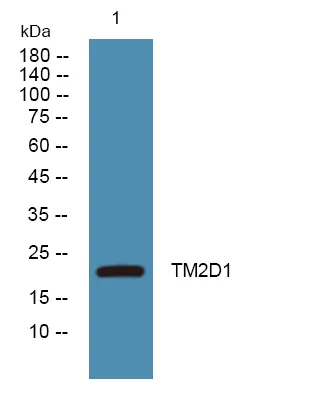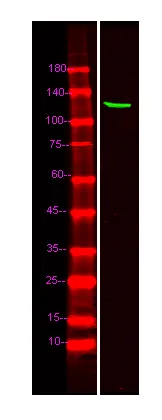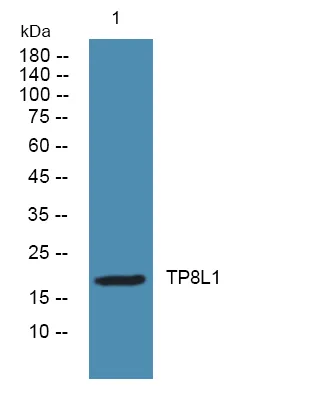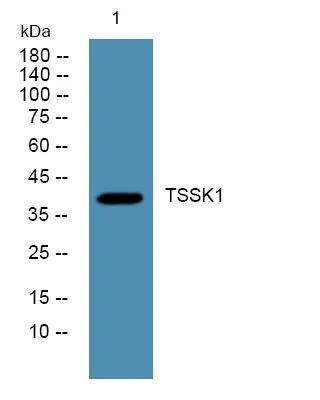产品概述
产品性能
免疫原
产品应用
研究背景
The protein encoded by this gene is a DNA ligase that joins single-strand breaks in a double-stranded polydeoxynucleotide in an ATP-dependent reaction. This protein is essential for V(D)J recombination and DNA double-strand break (DSB) repair through nonhomologous end joining (NHEJ). This protein forms a complex with the X-ray repair cross complementing protein 4 (XRCC4), and further interacts with the DNA-dependent protein kinase (DNA-PK). Both XRCC4 and DNA-PK are known to be required for NHEJ. The crystal structure of the complex formed by this protein and XRCC4 has been resolved. Defects in this gene are the cause of LIG4 syndrome. Alternatively spliced transcript variants encoding the same protein have been observed. [provided by RefSeq, Jul 2008],catalytic activity:ATP + (deoxyribonucleotide)(n) + (deoxyribonucleotide)(m) = AMP + diphosphate + (deoxyribonucleotide)(n+m).,cofactor:Magnesium.,disease:Defects in LIG4 are a cause of severe combined immunodeficiency autosomal recessive T-cell-negative/B-cell-negative/NK-cell-positive with sensitivity to ionizing radiation (RSSCID) [MIM:602450]. SCID refers to a genetically and clinically heterogeneous group of rare congenital disorders characterized by impairment of both humoral and cell-mediated immunity, leukopenia, and low or absent antibody levels. Patients with SCID present in infancy with recurrent, persistent infections by opportunistic organisms. The common characteristic of all types of SCID is absence of T-cell-mediated cellular immunity due to a defect in T-cell development. Individuals affected by RS-SCID show defects in the DNA repair machinery necessary for coding joint formation and the completion of V(D)J recombination. A subset of cells from such patients show increased radiosensitivity.,disease:Defects in LIG4 are the cause of LIG4 syndrome [MIM:606593]. This disease is characterized by immunodeficiency and developmental and growth delay. Patients display unusual facial features, microcephaly, growth and/or developmental delay, pancytopenia, and various skin abnormalities.,function:Efficiently joins single-strand breaks in a double-stranded polydeoxynucleotide in an ATP-dependent reaction. Involved in DNA non-homologous end joining (NHEJ) required for double-strand break repair and V(D)J recombination. The LIG4-XRCC4 complex is responsible for the NHEJ ligation step, and XRCC4 enhances the joining activity of LIG4. Binding of the LIG4-XRCC4 complex to DNA ends is dependent on the assembly of the DNA-dependent protein kinase complex DNA-PK to these DNA ends.,online information:DNA ligase entry,online information:LIG4 mutation db,similarity:Belongs to the ATP-dependent DNA ligase family.,similarity:Contains 2 BRCT domains.,subunit:Binds to XRCC4. The LIG4-XRCC4 complex has probably a 1:2 stoichiometry. The LIG4-XRCC4 heteromer associates in a DNA-dependent manner with the DNA-dependent protein kinase complex DNA-PK, formed by the Ku p70/p86 dimer (G22P1/G22P2) and PRKDC.,tissue specificity:Testis, thymus, prostate and heart.,
研究领域
Non-homologous end-joining;




